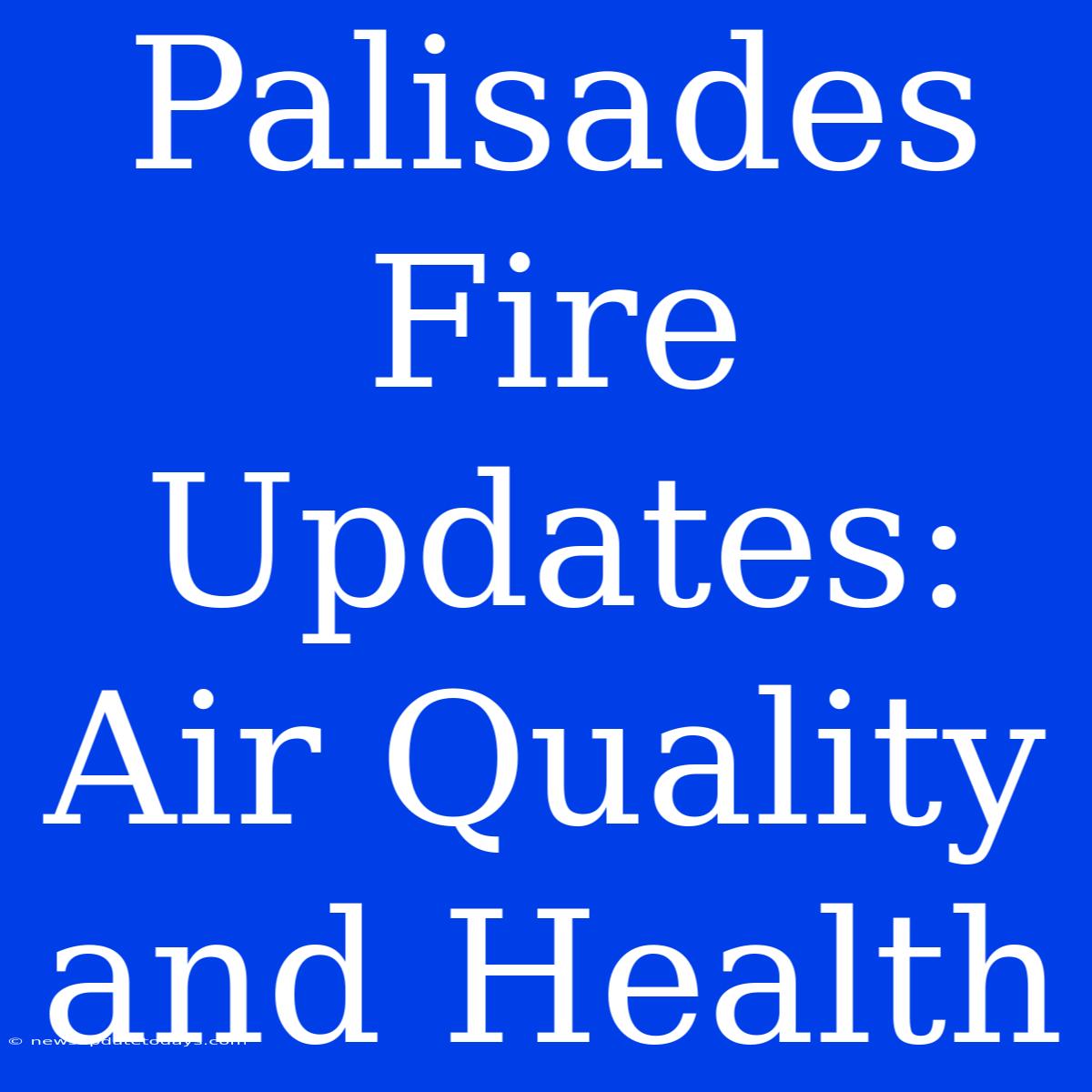Palisades Fire Updates: Air Quality and Health Impacts
The Palisades Fire, burning near Los Angeles, continues to impact air quality and public health. This article provides the latest updates on the fire's progression and its effects on respiratory health, offering advice on how to stay safe.
Current Fire Situation & Air Quality:
The size and intensity of the Palisades Fire fluctuate daily. Checking official sources like the Los Angeles County Fire Department and the South Coast Air Quality Management District (SCAQMD) is crucial for up-to-the-minute information. These agencies provide detailed maps showing the affected areas and real-time air quality readings. Look for indices like the Air Quality Index (AQI) – higher numbers indicate poorer air quality.
Understanding the Health Risks:
Smoke from wildfires contains harmful pollutants like particulate matter (PM2.5), carbon monoxide, and volatile organic compounds. These pollutants can irritate the eyes, nose, and throat, and worsen pre-existing respiratory conditions like asthma and COPD. Even healthy individuals can experience symptoms like coughing, shortness of breath, and wheezing. Children, the elderly, and those with respiratory illnesses are particularly vulnerable.
Protecting Yourself and Your Family:
- Stay Informed: Regularly monitor air quality reports and heed any health advisories issued by local authorities. Consider signing up for emergency alerts.
- Reduce Exposure: When air quality is poor, limit outdoor activities, especially strenuous ones. Keep windows and doors closed, and use air conditioning with a good filter (HEPA filters are ideal).
- Air Purifiers: Consider using a high-quality air purifier, especially in homes and workplaces.
- Masks: While N95 masks offer better protection than standard surgical masks, their effectiveness against wildfire smoke is debated. Consult health officials for the most appropriate advice.
- Hydration: Stay well-hydrated to help your body cope with the effects of smoke inhalation.
- Symptoms & Medical Attention: If you experience worsening respiratory symptoms like chest pain, difficulty breathing, or dizziness, seek immediate medical attention.
Long-Term Impacts:
Wildfire smoke can have long-term health consequences, contributing to cardiovascular and respiratory diseases. Even short-term exposure can exacerbate existing conditions. Ongoing monitoring of health and seeking medical advice if needed is important, even after the immediate fire threat subsides.
Resources:
- Los Angeles County Fire Department: [Insert Official Link Here]
- South Coast Air Quality Management District (SCAQMD): [Insert Official Link Here]
- California Air Resources Board (CARB): [Insert Official Link Here]
Disclaimer: This article provides general information and should not be considered medical advice. Always consult a healthcare professional for any health concerns. The information regarding mask effectiveness is subject to ongoing research and recommendations may vary based on the specific situation and advice from local health authorities. Always prioritize the advice of official sources such as the agencies listed above.

